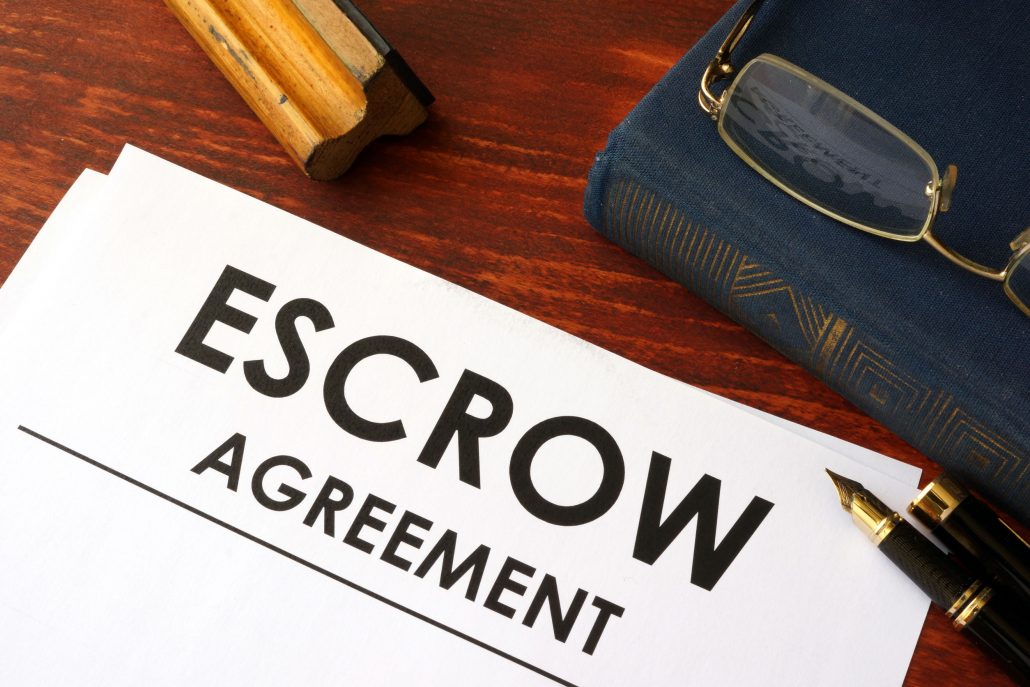When buying or refinancing a home, you’re going to come across many terms that you may not be familiar with. Terms such as escrow are thrown around quite a bit, though many consumers have no idea what they actually mean.
What is Escrow?
The easiest way to describe escrow is the process of having a third party hold onto something of value during a transaction. In the case of real estate, that could mean depositing funds into an escrow account to be disbursed during the final closing of a home.
Other related terms you’re likely to come across include:
- Escrow Account: A type of savings account that a mortgage servicer sets up and manages. Your mortgage payments are then placed into this account to be later used when property expenses become due.
- Escrow Payment: When certain expenses become due (such as hazard insurance, mortgage insurance, lease payments, etc.), escrow payments will be taken out of your escrow account and applied to these expenses.
- Escrow Disbursement: When escrow funds are used to pay mortgage insurance, real estate taxes, and other property expenses.
How Does Escrow Work?
The term escrow comes up several times during the home buying and/or refinancing processes. Essentially, escrow is an arrangement between two parties who are in the process of completing a transaction – aka a home buyer and the home seller.
These transactions typically require the exchange of large amounts of money. When there is ever a belief that one party may not be able to fulfill their obligations, escrow allows both parties to involve a third party to ensure the transaction goes smoothly.
When buying and selling real estate, escrow allows the seller to rest assured knowing the buyer deposits payments into the escrow account. It also allows buyers to ensure the seller won’t get the full payment until they complete all obligations (e.g., inspections and renovations).
How Does Escrow Work When Buying a House?
When buying a home, the term escrow comes up at least twice: once when setting up an account that will be used, especially for purchasing the home, and again during the mortgage closing when a new escrow account is set up to ensure future property expenses are paid on time.
When the buyer and seller agree on a selling price and services to complete before the seller receives payment, the buyer should deposit money into an escrow account before closing. In these cases, the buyer isn’t able to take ownership of the property immediately. To protect their investment, they put the payment into the escrow account, and the house is then taken off the market. A third-party mortgage servicer manages the account, assuring the buyer they won’t be losing money due to a possible scam.
Having the escrow account also benefits the seller because it allows them the option to see that the buyer is serious and has the funds available to make the purchase. Once they’ve finalized their side of the agreement, the seller receives the escrow funds, and the buyer will then take ownership of the home.
How Does Escrow Work When Refinancing?
Refinancing (in real estate) is the act of paying off your home loan with the proceeds from a brand-new loan that uses your current property as security.
When you first purchased your home, you likely set up a mortgage escrow account. This means your mortgage payments were directly deposited into an escrow account. From there, the mortgage servicer would use the escrow payments to pay various property expenses, such as property taxes and insurance payments.
When you go to refinance your home, your initial mortgage loan is essentially paid off in full. Your initial mortgage escrow account is then closed as well. However, a new one will be opened once your new mortgage agreement is finalized.
Get Your Escrow Questions Answered
Trying to answer what escrow is can be quite tricky if you are venturing into real estate without the proper guidance. Instead of trying to do it all on your own, why not inquire about the home buying process with an experienced mortgage lending team with many accreditations to their name.
If you have questions about escrow and how it works, contact Fairway’s First Team today!
Dreaming of a new home? Take your dreams off the whiteboard and turn them into blueprints with a home mortgage loan from Fairway’s First Team! Let us do all of the drawing and paint you a picture of a beautiful home with competitive interest rates. Call today at (503) 765-1150! pic.twitter.com/58ppA3aLn8
— FairwaysFirstTeam (@FairwayImco) March 5, 2022

